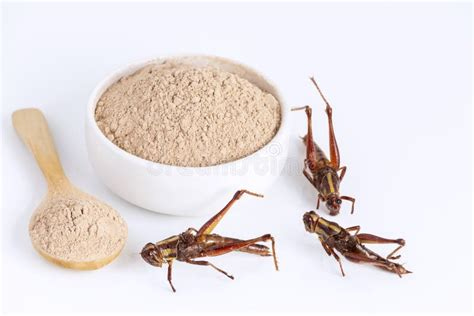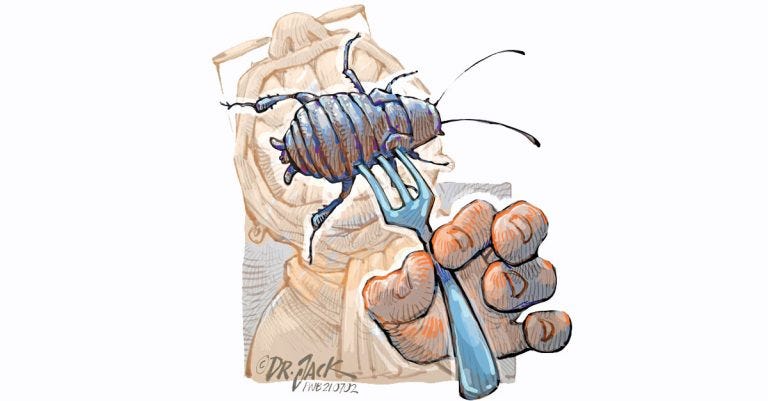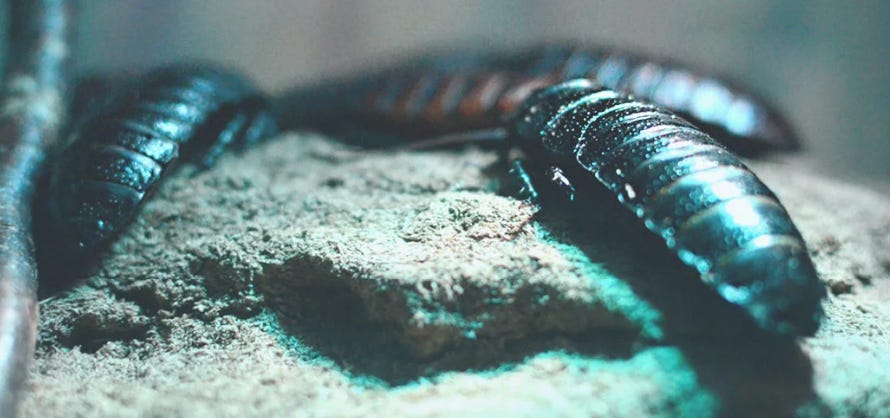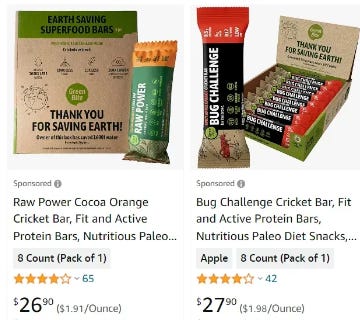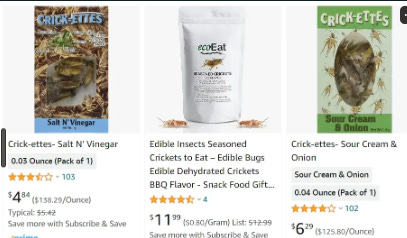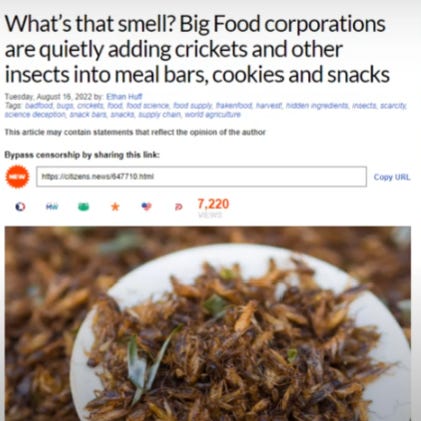The Repulsive Trend of Edible Insects
I never thought I'd write this article, but the reality of insect-based food is here. We spent our childhood shooing flies off our food, and now they want us to eat them! The initiative, spearheaded by United Nations globalists, is meant to address environmental concerns, malnutrition, food inequality, and climate change.
However, the underlying agenda is a smokescreen focused on controlling the global food supply. The term "alternative proteins" has become a cornerstone of their campaign, encompassing insects, algae, and lab-grown meats. For some reason, they think they can force this goop on us, despite it being more suitable for livestock consumption than for humans.
The push to include insects is more than a trend; it’s a deliberate attempt to reshape our food supply. While some companies disclose the addition of insect-derived ingredients, many others don’t. But as long as people keep eating processed foods, that’s exactly what some of the ingredients will be.
Are Insects Healthy?
There are plenty of claims about the health benefits of insects, but when stacked against the detriments, it raises extreme concern for anyone considering making insects a regular part of their diet. Here are a few examples:
Allergens: Insects are biologically similar to shellfish, such as shrimp and crabs. Those with shellfish allergies may also be allergic to insect proteins, posing a risk of allergic reactions for these consumers.
Contamination: Several bacterial species, parasites, viruses and their toxins or fungi have been associated with both farm-reared and wild-caught edible insects.
Chemical Substances: (venom, antinutrients, veterinary drugs used in insect farming, pesticides or organic pollutants present in the environment or diet of insects, etc.);
Toxins and Anti-Nutrients: Some insects may contain harmful substances, anti-nutrients, or pose toxicity risks, as it’s difficult to decontaminate them due to their small size. This includes bioaccumulation of pesticides or heavy metals.
Physical Agents: Hard parts of insects such as the sting, rostrum.
Insects Products
They're already sneaking bug dust into protein bars, pasta, and even baked goods. Brands like Exo, Chapul, and Crickstart are pushing this disgusting stuff. If you're not checking labels, you might be eating bugs without knowing it!
Then there’s mealworm powder. It's found in granola bars, protein powders, baked goods, and even pasta. Brands like Bitty Foods and Entomo Farms make this powder.
Other treats include silkworm, grasshopper and termite powder, black soldier and dragonfly larvae, locust flower, beetle, ant and cockroach powders. Don’t chuckle because these are already deeply hidden in our food supply—even health supplements.
I’ll give you an example of just how disgusting this stuff is. South Africa produces protein drinks from fly larvae. Thinking about drinking this stomach-churning beverage derived from maggot-like creatures often found writhing in decomposing matter is enough to make the skin crawl.
Scientists are also looking at cockroach milk. This involves extracting a crystal-like substance from the gut of the Pacific beetle cockroach; a creature known for scuttling across dirty floors and hiding in dark crevices. In addition, there’s currently no research demonstrating that cockroach milk is safe for human consumption.
So what types of foods contain insects? Companies openly advocating them are shamelessly paraded on Amazon: Cricket protein bars or salt and vinegar/sour cream and onion snacks infused with insect powders.
Perhaps these are simple to spot. But rest assured that they’re already hiding some of these critters in many processed foods you now eat. Read your label for strange-sounding ingredients:
What Can You Do?
If manufacturers have their way, these products will become more prevalent on store shelves. You need to start making informed choices, so here are some tips:
Check Labels: Be aware of insect- and bug-derived ingredients and their sources.
Research Brands: Opt for brands that steer clear of these ingredients, as the processing process often requires toxic and carcinogenic chemicals, such as Hexane.
Avoid Processed Foods: This is especially so for this grotesque fare. If you don’t buy it, they won’t stay in business, so stay informed.
It’s just the beginning of a widespread insect invasion in our diets, with a concerted effort to brainwash us into believing that insects are the next superfood—packed with nutrient goodness.
No lie is too big, it seems. This isn’t a sustainable solution; it's a cruel joke being played on consumers. The video below shows some of this propaganda, if you have the stomach to watch it.
Your presence here is greatly valued, and that’s why all our articles are free on this site. But if you've found that the content benefits your life, please consider supporting it through a cost-effective paid subscription. This plays a vital role in covering operational costs and supports the continuation of this independent, unbiased research and journalism work. Thank you!!
If shy about commitments, feel free to leave a one-time tip!



